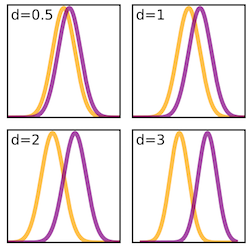concept inventories Recommendations
19 Recommendations are tagged with "concept inventories"

How are research-based assessment instruments developed and validated?
April 10, 2021 by Adrian Madsen, Sarah B. McKagan and Eleanor C. SayreThis article discusses the process of developing and validating research-based assessment instruments in the physics and astronomy education research community.
assessment, concept inventories

Which mechanics research-based assessment should I use in my class?
April 10, 2021 by Adrian Madsen, Sarah B. McKagan, Eleanor C. SayreThis article discusses and compares 11 research-based assessments in kinematics and forces, energy, rotation and density to help instructors choose one to use in their introductory course. It also discusses one assessment for intermediate mechanics.
assessment, concept inventories, mechanics, kinematics, energy, rotation, density

Which electricity and magnetism research-based assessment should I use in my class?
April 10, 2021 by Adrian Madsen, Sarah B. McKagan, Eleanor C. SayreThis article discusses and compares 9 research-based assessments in electricity, magnetism and circuits to help instructors choose one to use in their introductory course. It also discusses 3 electricity and magnetism for upper-level courses.
assessment, concept inventories, electricity and magnetism, circuits, electrodynamics

Which quantum mechanics or modern physics research-based assessment should I use in my class?
April 10, 2021 by Adrian Madsen, Sarah B. McKagan and Eleanor C. SayreThis article discusses and compares 3 intermediate quantum mechanics research-based assessments, 5 upper-level quantum mechanics assessments and one relativity assessment to help instructors choose one to use in their course.
concept inventories, assessment, quantum mechanics, modern physics

Which thermodynamics research-based assessment should I use in my class?
April 10, 2021 by Adrian Madsen, Sarah B. McKagan and Eleanor C. SayreThis article discusses and compares 4 research-based assessments on thermodynamics help instructors choose one to use in their course.
concept inventories, assessment, thermodynamics

Which optics and waves research-based assessment should I use in my class?
April 10, 2021 by Adrian Madsen, Sarah B. McKagan and Eleanor C. SayreThis article discusses and compares 5 research-based assessments on optics and waves: 4 for introductory courses and 1 for an upper-level course.
concept inventories, assessment, optics, waves

Which astronomy research-based assessment should I use in my class?
April 10, 2021 by Adrian Madsen, Sarah B. McKagan and Eleanor C. SayreThis article discusses and compares 8 research-based assessments in astronomy to help instructors choose one to use in their introductory course.
assessment, concept inventories, astronomy

Which mathematics research-based assessment should I use in my physics class?
April 10, 2021 by Adrian Madsen, Sarah B. McKagan, Eleanor C. Sayre, and Cassandra A. PaulThis article discusses and compares 6 research-based assessments in mathematics to use in your physics class to assess students' level of math readiness for a given physics class, or to assess students' understanding of math topics that are covered in physics classes.
concept inventories, assessment, mathematics, vectors

Which beliefs and attitudes research-based assessment should I use in my class?
April 10, 2021 by Adrian Madsen, Sarah B. McKagan, Eleanor C. Sayre, and Cassandra A. PaulThis article discusses and compares 9 research-based assessments about students' beliefs and attitudes, 2 assessments about the nature of science and 3 assessments about self-efficacy in physics.
assessment, concept inventories, beliefs and attitudes, nature of science, self-efficacy

Which problem-solving research-based assessment should I use in my class?
April 10, 2021 by Adrian Madsen, Sarah B. McKagan, Eleanor C. Sayre, and Cassandra A. PaulThis article discusses and compares 3 research-based assessments on problem-solving to help you choose one to use in your course.
concept inventories, assessment, problem-solving

Which scientific reasoning research-based assessment should I use in my class?
April 10, 2021 by Adrian Madsen, Sarah B. McKagan, Eleanor C. Sayre, and Cassandra A. PaulThis article discusses and compares 2 research-based assessments on scientific reasoning to help you choose one to use in your course.
assessment, concept inventories, scientific reasoning

Which laboratory skills research-based assessment should I use in my class?
April 10, 2021 by Adrian Madsen, Sarah B. McKagan, Eleanor C. Sayre, and Cassandra A. PaulThis article discusses and compares 4 research-based assessments on lab skills to help you choose one to use in your course.
concept inventories, research-based assessment, lab skills

Best Practices for Administering Concept Inventories
May 28, 2019 by Adrian Madsen, Sam McKagan, Ellie Sayre; PhysPort director, assistant director, and research directorThere are a plethora of concept inventories in physics available for faculty to use. These multiple-choice research-based tests about physics concepts are valuable because they allow for standardized comparisons among institutions, instructors, or over time. In order for these comparisons to be meaningful, you should use best practices for administering and interpreting the tests.
assessment, concept inventories, best practices

Addressing common concerns about concept inventories
July 8, 2016 by Adrian Madsen, Sam McKagan and Eleanor SayreConcept inventories are useful for assessing the effectiveness of your teaching, but as you use them, concerns and questions often come up. Here we discuss some common concerns about using concept inventories and related research that addresses these concerns.
assessment, concept inventories

Normalized gain: What is it and when and how should I use it?
March 18, 2016 by Sam McKagan, Eleanor Sayre, and Adrian MadsenIntroduction to normalized gain:
The normalized gain, introduced by Hake in 1998 "as a rough measure of the effectiveness of a course in promoting conceptual understanding," has become the standard measure for reporting scores on research-based concept inventories. Hake defined the average normalized gain as:
<g> = (<Post> - <Pre>)/(100 - <Pre>)
assessment, concept inventories, normalized gain, best practices

Effect size: What is it and when and how should I use it?
March 18, 2016 by Adrian Madsen, Eleanor Sayre, and Sam McKaganWhen making changes in the way we teach our physics classes, we often want to measure the impact of these changes on our students' learning. Often we do this by administering a research-based assessment at the beginning and end of the class and calculating the change between pre and post. There are several different measures that can be used to tell you, in one number, how to compare learning...
assessment, concept inventories, effect size, best practices

Administering research-based assessments online
February 10, 2016 by Adrian Madsen & Sam McKagan, PhysPort Assistant Director & DirectorAn overview of ways to administer research-based assessments online. Includes general guidelines and details about platforms for administering specific assessments including the FCI, FMCE, BEMA, CSEM, PCA, SOSESC-P, EMCS, CLASS, LSCI, E-CLASS, PLIC, FliP-CoIn, and MBT.
assessment, concept inventories, best practices, online tools

How can I get my students’ answers to concept inventories into electronic spreadsheets?
February 10, 2016 by Sam McKagan, PhysPort DirectorIf you are using multiple-choice concept inventories such as the FCI, BEMA, or CLASS to assess your students’ learning, the PhysPort Data Explorer can help you get instant analysis and visualization of your results. In order to use the Data Explorer, you’ll need to have your students’ responses in some kind of electronic spreadsheet, such as an Excel or .csv file.…
assessment, concept inventories

How do I get my students to take concept inventories seriously?
January 12, 2016 by Adrian Madsen, PhysPort Assistant DirectorConcept inventories are useful for assessing the effectiveness of your teaching, but only if your students take them seriously. You may be worried about how seriously your students are taking them. Here is what we know about students taking concept inventories seriously and some ideas for how you can encourage your students to do their best on these kinds of tests.
How seriously do…
assessment, concept inventories



